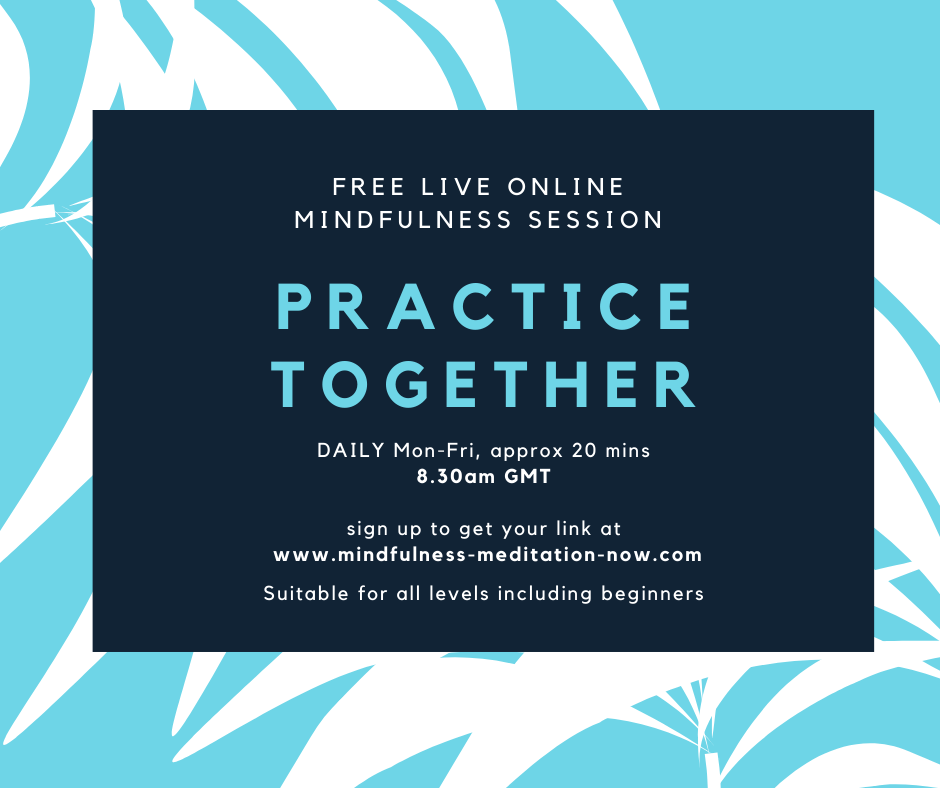Learning Mindfulness: Case Studies
People learning mindfulness experience varying benefits. To explain how mindfulness can help in very practical ways, some past participants of my courses shared their experiences explaining how learning mindfulness helped them in different situations. While these examples are from the workplace they could be equally relevant at home.
These case studies are from my book Mindfulness @ Work All names have been changed to protect confidentiality.
Communication
 |
Practising mindfulness can cultivate a pause that is enough for us to stop and stand back, thereby making an automatic reaction a considered response – as Alex* explains: |
“It was the last day before the holidays and I had been exchanging emails with a client who I thought was being needlessly obstructive about something I’d been hoping to finalize that day. I found myself typing a reply to him but at the same time I was aware of how annoyed I was – I could feel it in the way I hammered the keyboard! This was enough to make me pause – I knew I was angry so I decided to do nothing for the time being and deleted my intended reply. A few hours later I had an email from the other person conceding that their original request was unnecessary and I could go ahead as I had originally suggested. I was pleased that I’d been able to stop the situation escalating and potentially damaging my relationship with the client. I realized he wasn’t being deliberately difficult but we were both stressed trying to get stuff done by the holidays.”
Alex’s awareness of what was happening in her body as well as the irritation and frustration arising had been cultivated through practicing mindfulness regularly. Her awareness acted like a red flag, warning her of her unhelpful state of mind and giving her the ability to stop and pause. Rather than react and potentially damage a relationship she responded differently to usual, and there was a positive outcome for all concerned. This is just one example of how regular mindfulness practice influences our behaviour.
Find out how to learn mindfulness skills that will help you here
Relationships
 |
Work is
about relationships: relationships with colleagues, customers, clients, service
providers and suppliers underpin everything and can be the difference of a job
well done or not – and how both parties feel about it. |
The more we can bring awareness to these relationships and how we interact in them the better it is for everyone – but most of all for ourselves.
Kate* works in a corporate environment and came to mindfulness because she found herself getting wound up by colleagues. As she started using mindfulness at work she became aware of a specific member of her staff who pushed her buttons and she noticed how the irritation would stay with her long after the interaction with them was over. Describing one encounter with the individual she said:
“When I first started practicing mindfulness I never used to notice any physical sensations in my body but more recently I’ve become aware of my irritation as it arises as I become very hot all over. As well as noticing this as it happens I am now able to take a step back and actually steer the discussion. In a recent meeting with this person I found I was noticing good things about her such as her nice features and expression whereas previously I had just seen her as a ‘difficult person’. Now I can see more than that – I can see what is good about her. So since I’ve been practicing mindfulness over the last few weeks I’ve noticed that I have a sense of kindness and compassion as well as becoming aware of my own particular pressure points. I know it’s early days but I find it really encouraging and helpful for me.”
It’s important to be patient with mindfulness – a quality that is cultivated through the practices themselves. However, we do start to see results if we practice regularly, which encourages us to keep doing it.
Find out how to learn mindfulness skills that will help you here
Managing anxiety
 |
Susan* works in a busy city firm – a pressurised environment with demanding deadliness. As someone who internalised stress she wanted to find a better way to manage challenging times at work. |
“I was asked to present a sales pitch to a client - this involved going to the client's offices with a pre-prepared presentation, and then answering any quick fire questions they would throw at us to assess whether they wanted to appoint us as their lawyers. I was asked to attend fairly last minute. I hadn't done many pitches, and aside from the fact I would be presenting to a potential client, I was also attending the pitch with four partners from our firm. I was one of two junior members of the pitch team - that was almost more terrifying than presenting to the client! We travelled to the pitch by train and whilst the others busily buried themselves in their notes, I lowered my eyes, put my palms on my knees, and conducted a breathing space. This instantly calmed me, and I could literally feel my heart-rate slow down. I'd worried I would feel self-conscious meditating in front of colleagues, but not one of them noticed - they were all too engrossed in their own preparation. The pitch went very well - the feedback from the client, and from my senior colleagues was good, and I have no doubt of the part mindfulness played in that!”
Find out how to learn mindfulness skills that will help you here
Personal difficulties
 |
Sometimes difficulties at home affect us at work. Simon* described how simple mindfulness techniques were helpful for him when the effects of a sudden bereavement impacted negatively on his work. |
“I lost my mother to cancer very suddenly. After a week or so off work I had to go back of course, but I found it very difficult as I’d feel overwhelmed and upset. I found it difficult to cope and then I’d worry that I’d lose my job because of that, which made me feel worse. Then I started practicing mindfulness at work. When I began to get upset I would do the feet on floor one. It helped me. I used to go into the toilets too and just sit in a cubicle for a few minutes and watch my breath. It was private and so no one knew what I was doing. I also found it helpful to just go for a walk – leave the office and walk round the block. Being outside even for a short time just gave me the space I needed.”
We never know when we are going to experience stress at home or work and it is easiest to learn to practice mindfulness when things are going well so it becomes familiar to us, and the more we can become used to it the more readily it is available to us whenever we need it.
Find out how to learn mindfulness skills that will help you here
*All names have been changed to protect confidentiality.

